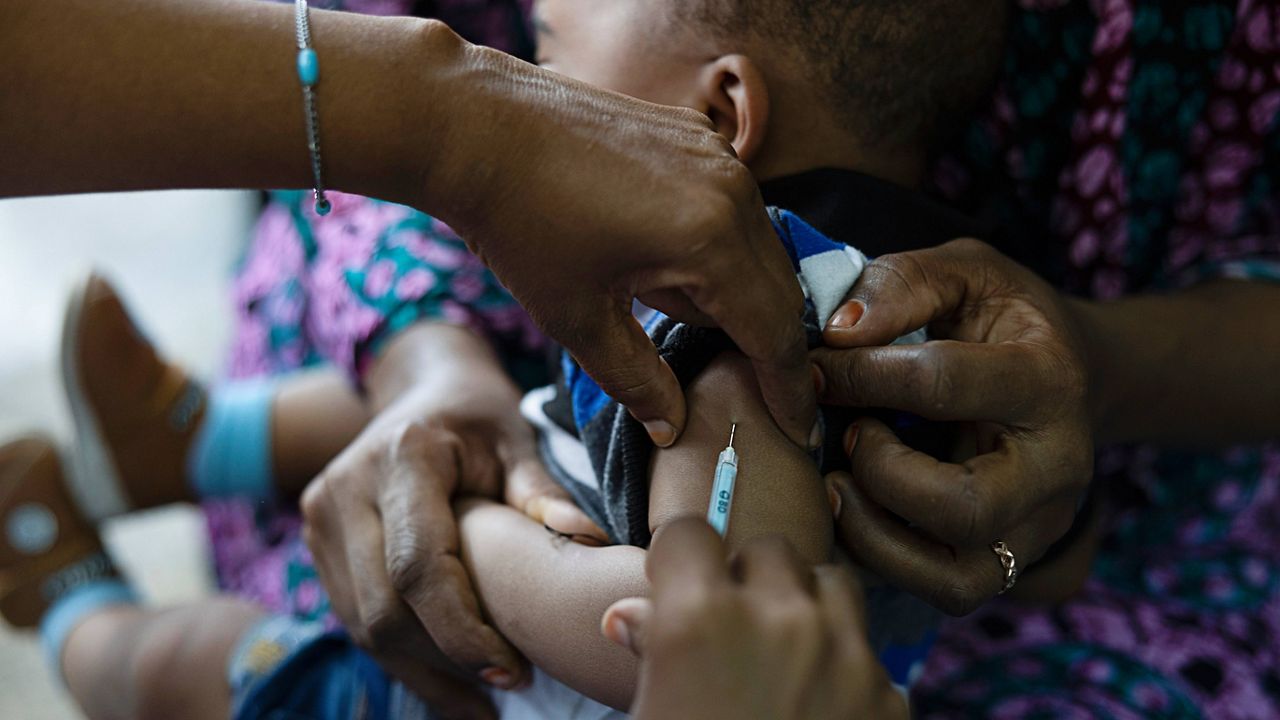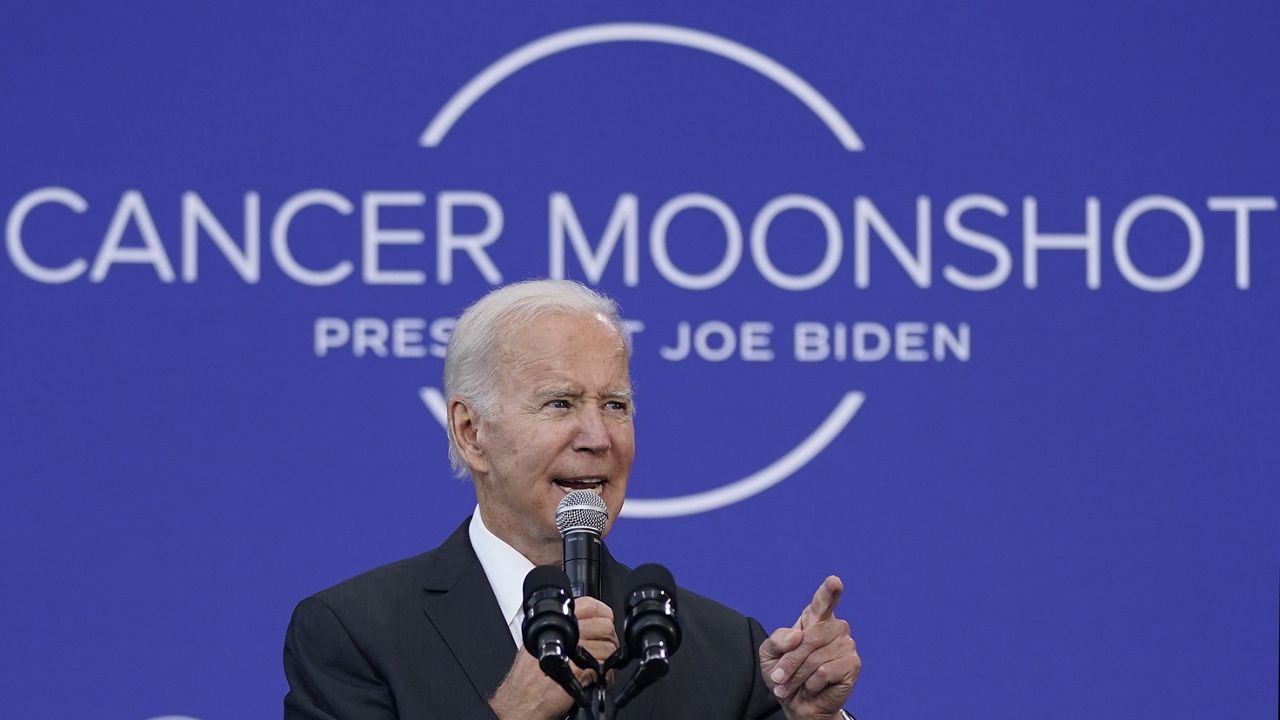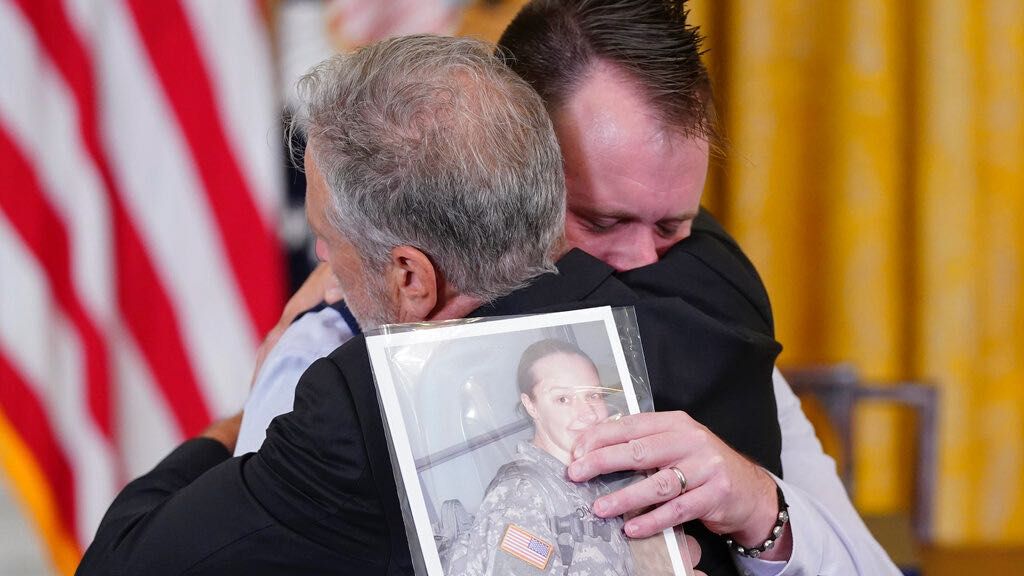State Department official Mark Lenzi first started hearing strange noises, suffering headaches and experiencing memory loss in 2017, when he was working in Guangzhou, China — symptoms of the so-called “Havana Syndrome.”
“I’ve had doctors say ‘I’ve never seen damage like this,’” Lenzi told Spectrum News in an interview.
Investigators are studying the growing number of U.S. diplomats, intelligence officials and other personnel worldwide reporting cases of the mysterious illness — those afflicted have reported nausea, headaches, dizziness, vomiting and other symptoms in line with traumatic brain injury (TBI).
Cases of the condition were first reported in 2016 by U.S. and Canadian embassy staff in Havana, Cuba, which led to its colloquial name. U.S. intelligence services have not yet reached a consensus on the cause of the so-called "Havana Syndrome."
Officials are probing if those cases are caused by exposure to directed energy, such as microwaves, possibly deriving from surveillance tools — or potentially something more sinister, like a weapon.
Lenzi says that he wasn’t evaluated for direct energy exposure until six months later, which he believes to be the root cause of his symptoms. Now he’s asking Congress to investigate what he says is the State Department’s slow, inconsistent response to Havana Syndrome outbreaks.
“It's crucial that these senators get the full picture and they aren't getting that full picture now,” Lenzi told Spectrum News. “I think you'd see things change relatively quickly in Washington when officers like myself are allowed to testify under oath in a classified setting.”
The State Department did not respond to Spectrum News’ requests for comment for this story.
Last month, Secretary of State Antony Blinken appointed Jonathan Moore, Principal Deputy Assistant Secretary and a member of the Senior Foreign Service, and Margaret Uyehara, formerly the U.S. Ambassador to Montenegro, to lead the department’s Health Incidents Response Task Force to investigate cases of Havana Syndrome — which the department refers to as Anomalous Health Incidents.
“We will do absolutely everything we can, leaving no stone unturned, to stop these occurrences as swiftly as possible,” Blinken said in November, adding: “This is about the health and security of our people and there's nothing we take more seriously.”
“All of us in the U.S. government, and especially with the State Department, are intently focused on getting to the bottom of what and who is causing these incidents, caring for those who have been affected and protecting our people,” he said.
Blinken encouraged employees of the State Department to come forward, even setting up a channel to report incidents anonymously.
“There is absolutely no stigma in reporting these incidents and there will, of course, be no negative consequences of any kind,” he said. “On the contrary, reporting means that we can get people the help they need — and by reporting, you can help keep others safe and help us get to the bottom of who and what is responsible.”
A number of prominent lawmakers have called for the State Department to take action.
“I think for many years, the State Department was pretending this wasn’t happening,” Florida Sen. Marco Rubio, the ranking member of the Senate Intelligence Committee, told Spectrum News.
“Their job is to be in these places and engage diplomatically,” he added. “One of the worst things that happens for diplomatic engagement is when you upset the host country.”
“While we cannot necessarily see their injuries, they are real and deserve the same attention and urgency as wounds that are visible,” New Hampshire Sen. Jeanne Shaheen said in a statement celebrating the appointments of Moore and Uyehara.
Shaheen, has been a vocal proponent for action on addressing the mysterious syndrome, saying at a hearing that there is “clearly a disconnect as to what is happening at the top levels of the State Department and how victims are being treated in some cases.”
“There’s still not enough information that’s being shared, not enough coordination that’s being done,” she said in an interview. “There’s not a unanimity of response on how to deal with it.”
Rubio and Shaheen, along with Sens. Mark Warner, D-Va., and Susan Collins, R-Maine, authored the Helping American Victims Afflicted by Neurological Attacks (HAVANA) Act, which authorizes the Central Intelligence Agency (CIA), State Department and other agencies “to support American public servants who have incurred brain injuries likely from directed energy attacks.”
The bill passed Congress unanimously and was signed into law by President Joe Biden in October. But Rubio says lawmakers still need more information about those impacted by the mysterious ailment.
“Depending on who those victims work for, for the intelligence agencies, having intelligence officers testify isn’t exactly something they would normally do,” the Florida Republican said. “But, in this situation, we know diplomats have been impacted by this.”
After initially being denied access to care at Walter Reed National Military Medical Center, Lenzi, his wife and their two children are expected to begin treatment there in February. Lenzi, who said his wife and children have also experienced symptoms of the mysterious illness, wants to share his experiences openly with lawmakers in an effort to help other victims.
“That’s how things will change at the State department for the better,” Lenzi said. “Now Congress has to go all the way and get a handle on the information they haven't been given.”
The Associated Press contributed to this report.









